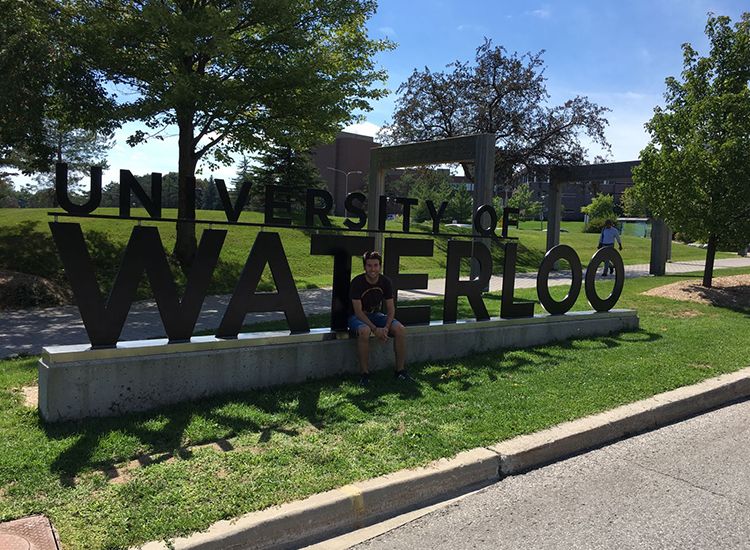04/10/2016IK4-IDEKO continues its commitment with The Specialization in dynamics and control of machines in the field of manufacturing
 "The knowledge gained in Canada can bring great benefits"
"The knowledge gained in Canada can bring great benefits"Iker Mancisidor, researcher of the
Dynamics and Control line at
IK4-IDEKO is just back from a six-month stay at the
University of Waterloo (Canada) where he completed his postdoctoral research. His experience is part of the exchange and collaboration programs with universities and research centres of international renown in which IK4-IDEKO also participates.
These initiatives allow researchers of the technology centre to gain more in-depth knowledge and at the same time boost their professional capacity in prestigious companies and universities in the field of manufacturing. The objective of IK4-IDEKO is to commit to specialisation, to be connected to research work of the most relevant players in the field of industrial production and to strengthen links that result in future collaboration.
You did your postdoctoral research at the Canadian University of Waterloo. Can you tell us more about your experience there?I stayed there for some six months, during which I did my postdoctoral research in the
precision control laboratory. I attended some of the lectures at the university, I was involved in the department and participated in meetings and worked on different projects. In addition, I was also a co-director of a Master student, who incidentally is here now on a four-month stay with us.
What was it like working abroad? I was able to make a clear distinction between working in a technology centre and a university. The pace over there is very different and there is a lot of flexibility. One of the major differences for example is the fact that working from home is accepted as normal. More flexibility is given in the development of projects, but at the same time they are very demanding when it comes to results.
I was lucky enough to work and learn with Doctor Kaan Erkorkmaz, professor at the Department of Mechanical Engineering of the University of Waterloo. I went to two congresses with him where I got to meet many people in the sector and made some new contacts.
What have you gained from this experience?I have learned quite a lot on topics related to machine control and I hope that this knowledge can be applied to my research in active damping.
How do the two centres work together?Before I went there, Doctor Kaan Erkorkmaz had already worked with us, mainly with the researchers Jokin Muñoa and Xavier Beudaert. Most recently, the centres worked together on
an article that was presented at the International Academy of Production Engineering (CIRP), dealing with active damping with the motors of the machines.
My stay there has further facilitated a tighter collaboration between the two centres, as also a Master student of the university is now doing his placement at IDEKO-IK4. During his stay here with us, he is learning about all aspects that play a role in chatter and I am convinced that we will keeping working together when he returns to Canada.
Despite the fact that this is the first exchange, it opens the door to new collaborations. We are interested in another student doing his placement here to work with us on the European project
Industry 4.0 MC-Suite. Are you planning to go back to the University of Waterloo?Before we make a decision, we want to assess the experience of our Canadian student. But we are very interested in continuing the collaboration and it is very possible that we send one of our researchers to continue training over there or that a student from Waterloo university comes to work with us here.
What results have been achieved?
It is a complex issue to quantify results immediately, but I strongly believe that the knowledge I gained there can benefit us here greatly in the field of active damping. Also, the collaboration with the centre will be a major support because they have extensive knowledge of numerical control machines. I have not doubt whatsoever that there will be results in the future.
The University of Waterloo has the best professionals in the world of machine control and we are specialists in chatter, so I think that this combination will be very beneficial for both centres.
 "The knowledge gained in Canada can bring great benefits"
"The knowledge gained in Canada can bring great benefits"